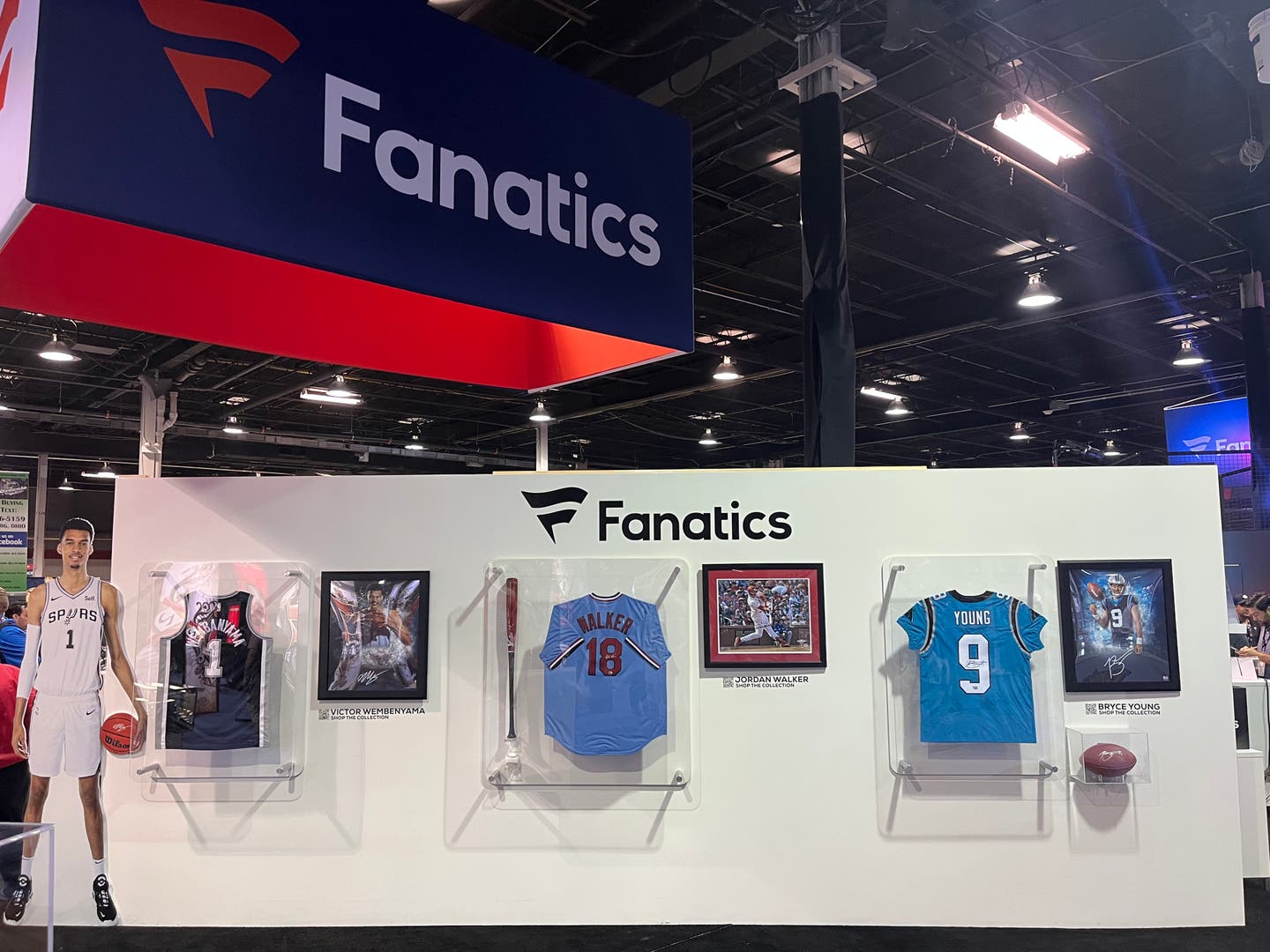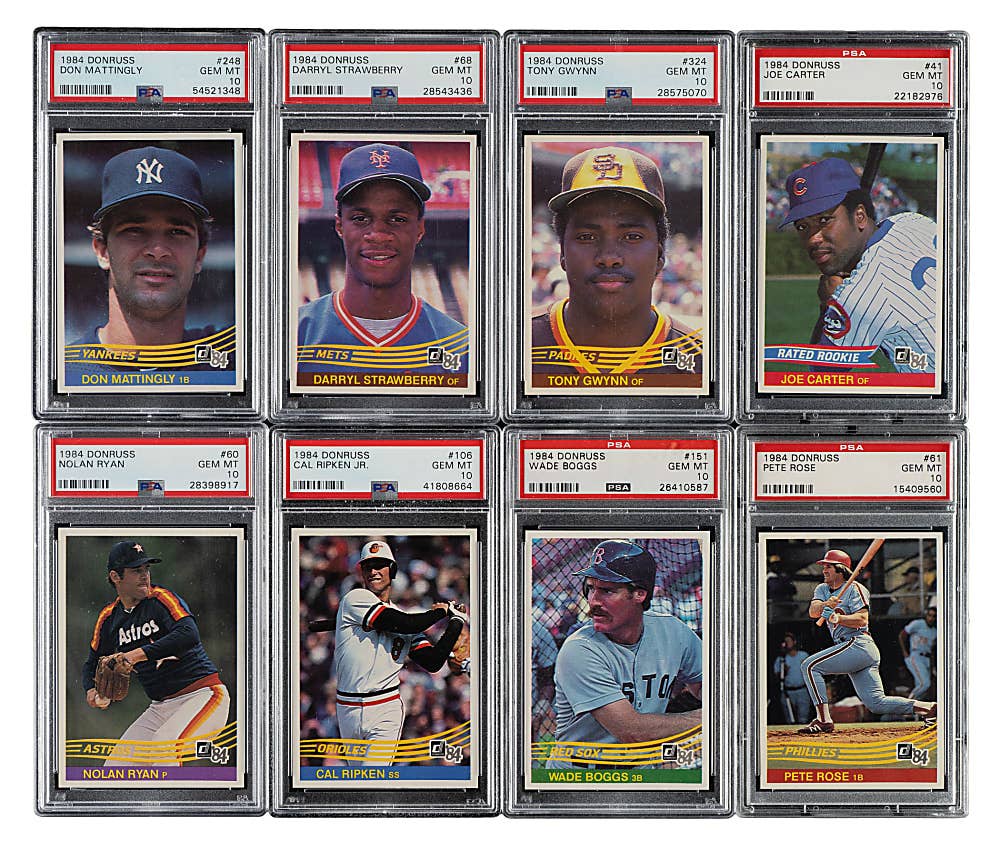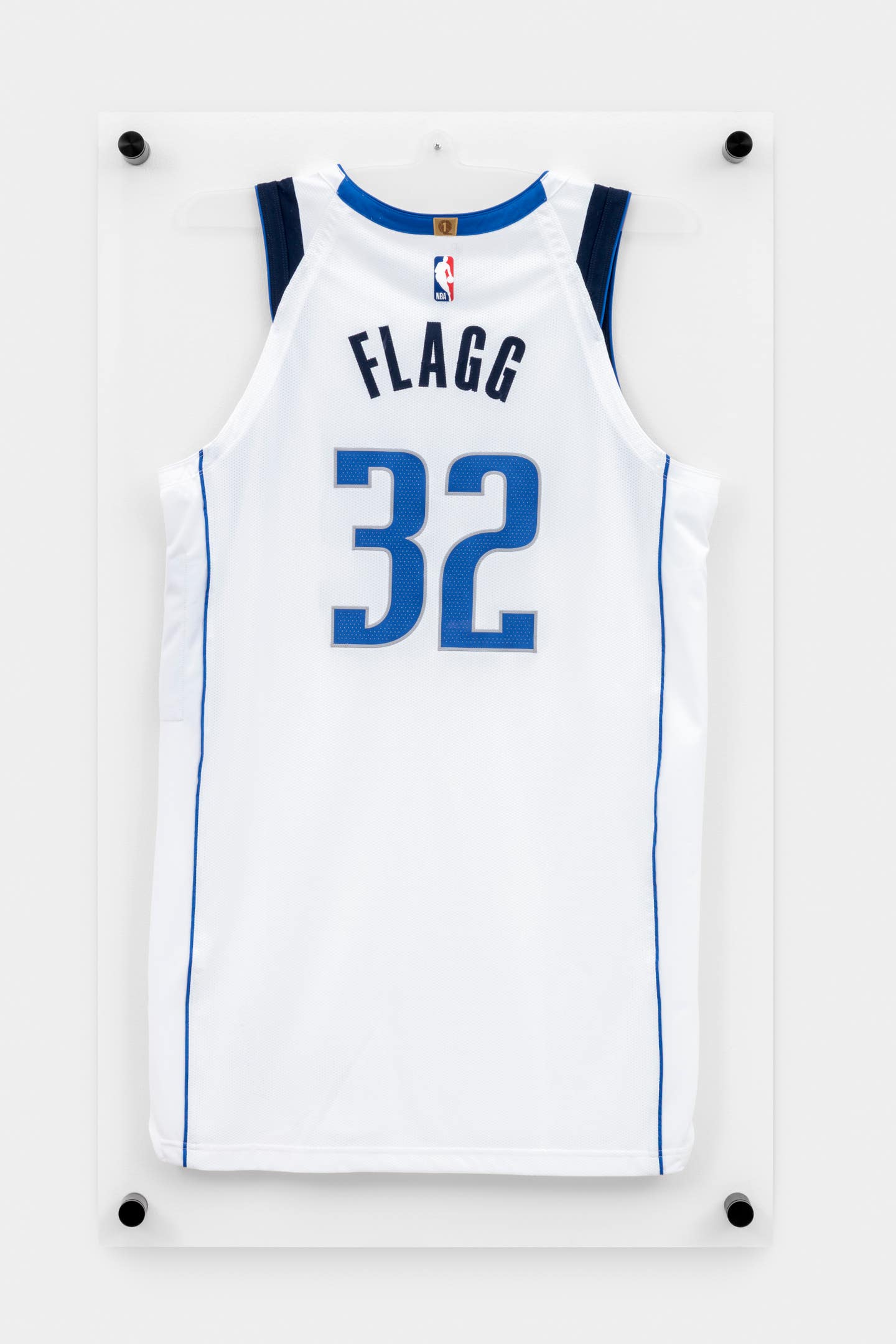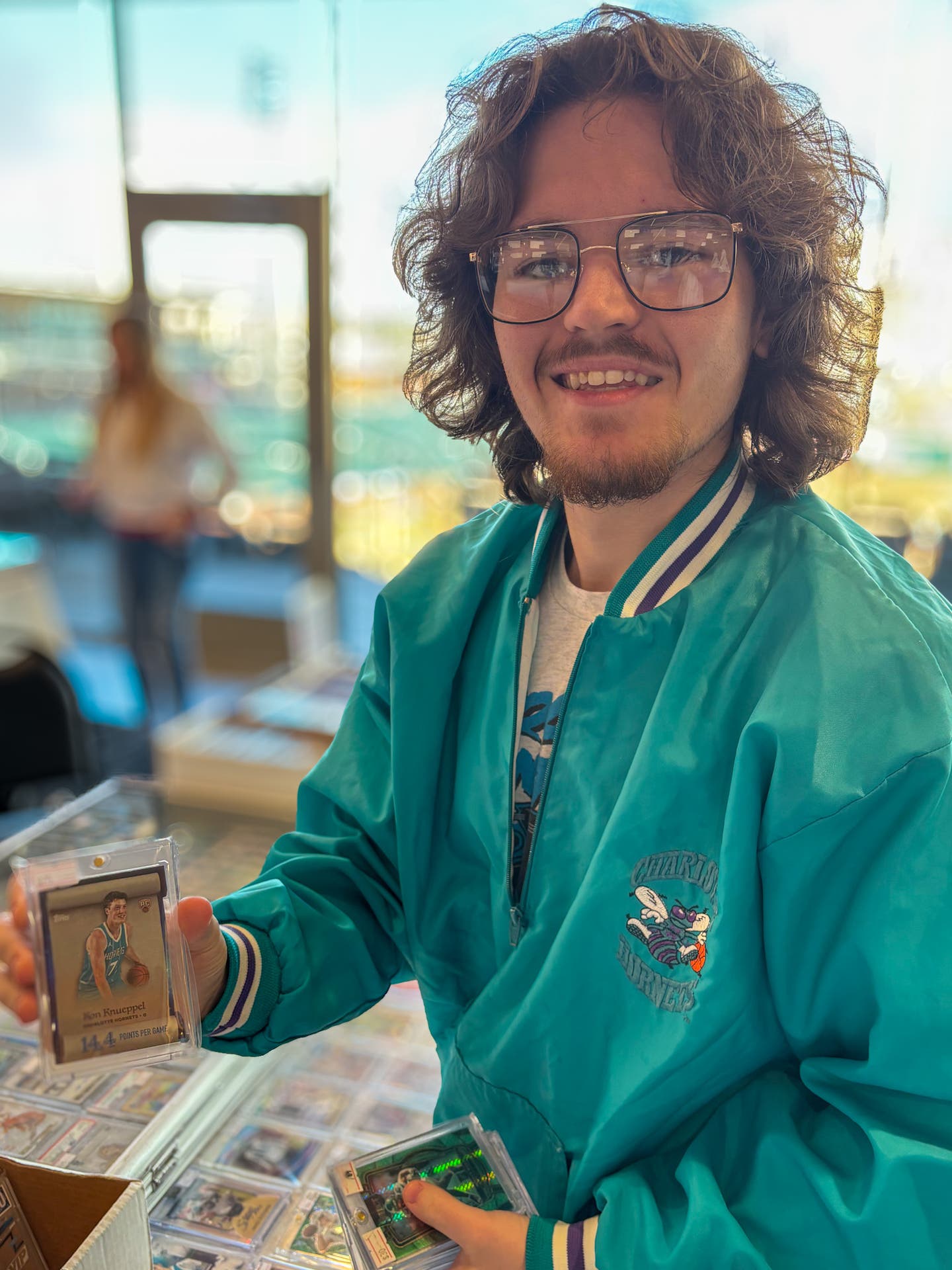
News
Fanatics vs. Panini: Legal experts react to lawsuits that could impact future of sports card hobby
Ever since Fanatics acquired Topps in early 2022, a clash between Fanatics and its chief trading card competitor Panini has been brewing.
After Panini filed a federal antitrust lawsuit against Fanatics on Aug. 3, four days later, Fanatics filed a countersuit in U.S. District Court. Fanatics has now filed a motion to have the antitrust suit moved from Florida, where it was filed, to U.S. District Court in New York, where it filed its countersuit.
Those two lawsuits came on the heels of a suit Panini filed in May over Fanatics hiring three dozen of its employees.
Paul Lesko — a litigator known on social media as the “hobby lawyer” by folks in the industry — was shocked Fanatics responded so quickly after Panini’s antitrust suit was filed.
“The way most lawsuits work, once you get sued, if you’re a large company and you’re represented by a defense firm, you normally want to respond only when you’re supposed to respond,” Lesko told Sports Collectors Digest. “Since this was an antitrust lawsuit, you get it served, you wait three weeks or four weeks, depending on what the deadline is. Then you maybe get an extension of time because it is complex and you have to put together a pretty long response, then you do the bare minimum. You file a motion to dismiss and you only address what you need to in the motion to dismiss.
“But, really, Fanatics’ filing accomplishes two or three things. One is it’s a legitimate lawsuit based on potentially bad-faith negotiations and allegedly bad lawsuits. But in order to do that, it spends pages going detail by detail addressing the antitrust issues raised by Panini’s complaint. I just found that refreshing, I really did. Things that we normally wouldn’t get until further into the case.
“Fanatics is coming out swinging. … Each issue that stood out to me from Panini’s antitrust complaint, Fanatics came back with a response to it. I wasn’t expecting it so soon, and even if it came out four weeks from now, I wasn’t expecting it to be in such detail.”
What happened once the hail of bullets started flying between Fanatics and Panini can get confusing since there are so many moving parts. The average trading card collector might not be able to follow everything that’s going on with the lawsuits, but this is right up Lesko’s alley.
PANINI’S ANTITRUST LAWSUIT
Panini’s suit started the back-and-forth battle by filing the antitrust lawsuit.
Panini still owns the exclusive rights to produce NBA basketball cards through September 2025 and the rights to produce NFL cards through 2026. It alleges in its lawsuit that Fanatics has interfered with those existing contracts and Panini’s ability to conduct business.
“Fanatics has done all this Anticompetitive Conduct to monopolize the markets for Major U.S. Professional Sports Leagues trading cards [and others] even before its exclusives begin,” the Panini suit, filed in U.S. federal court in Florida, states. “In short, Fanatics seeks to cripple Panini both for the short term — the remaining years on Panini’s current exclusive license agreements — and the long term.”
Breaking down the lawsuit, Lesko said Panini is focused on the exclusive licenses.
“Panini is someone who’s had two exclusive licenses for 10 years, so it has a very hypocritical feel to me,” Lesko said. “It’s somebody saying, ‘OK, I had two exclusive licenses and I’m fine, and that’s OK even if you have them for 10 years.’ It’s when Fanatics comes along and gets one more, and some of those go for longer, that’s the real problem. There’s more in there, but that’s one of the things that really stuck with me that it seems fairly hypocritical.”
Lesko added that the lawsuit is targeting just the trading card aspect of the hobby and not memorabilia.
“As part of an antitrust action, you have to define what the market is, and there will be a fight over what the market is,” Lesko said. “It actually says there’s eight markets — it’s high end and low end cards for MLB, NFL, NBA and sports leagues, so it wasn’t eight markets. So it’s only focused on trading cards. It will be interesting to see what Fanatics comes back with. They’re going to come back and say, either the market is only or all types of trading cards. It could be non-sports, it could be Pokémon. It will be interesting to see what the market is because it’s going to be a big fight.”
Fanatics, which is owned by multi-billionaire Michael Rubin, acquired the rights to produce trading cards for MLB, NFL and NBA in 2021 and followed that up by purchasing Topps for $500 million. That allowed Fanatics to immediately start manufacturing baseball cards through its contract with MLB and the MLB Players Association.
Marc Edelman, a professor of law at Zicklin School of Business at Baruch College who teaches sports law and antitrust, is surprised the Fanatics-Panini showdown has gotten to this point. He believes there were possible antitrust red flags when Fanatics made its deal to acquire Topps.
“I would have expected the parties to have needed to file that transaction with the Department of Justice and Federal Trade Commission,” Edelman told Sports Collectors Digest. “A reasonable part of thought is that one of the agencies would have issued a second request for information, because in essence the merger reduced competition in the sports [trading] cards market, assuming one existed, from three companies to two. While I do not know what paperwork was filed or not filed in conjunction with this transaction, I am at least mildly surprised that a three-to-two merger of this type did not get scrutiny.
“Now with just two major players in the sports card market, that being Fanatics and Panini, and the reality that many of the contracts to secure team marks and with players’ associations to secure rights to player’s likenesses have been locked up for a long period of time in exclusivity by Fanatics, I think there is very real concern that we have indeed seen substantial lessening of competition within the card manufacturing marketplace.”
Having more companies in the sports card industry creates competition and competition is a positive for consumers. That competition drives down costs but it also drives up quality, Edelman said.
“When Topps, Panini and Fanatics were in some way all competing in the broader sports card marketplace, they each had the incentive to create the best possible product and a way of inducing potential consumers to buy their product,” Edelman said. “On the other extreme, Topps is gone, and if Panini would go away too, leaving Fanatics as a true monopoly over the card space, Fanatics would be able to make as junky cards as they wished and there would be no alternative for would-be collectors, especially given that Fanatics has exclusive contracts with many of the sports leagues and the players’ associations, which would make it very difficult for a new competitor to ever come into the space.”
In its antitrust lawsuit, Panini is claiming Fanatics used unfair business to acquire the trading card rights from the three major sports and their players associations.
“Panini was not given an opportunity to bid or otherwise compete for the licenses Fanatics acquired,” Panini states in its lawsuit. “Panini only learned about Fanatics’ exclusive agreements after they were consummated, through reading about them in the media.”
Panini also revealed in its lawsuit that Fanatics has acquired GC Packaging, LLC, the Texas printing company that prints most of its cards, forcing the card manufacturer to work with its chief rival.
The lawsuit doesn’t specify dollar values, but Panini is seeking money damages, treble damages and attorney fees to go along with at least two interesting injunctive acts, Lesko noted.
“Fanatics came and bought the printer of Panini, so one of the things they’re asking for is that printer be divulged,” Lesko said. “They’re also asking that Topps be divulged from Fanatics, too. They’re kind of asking for a reset button to maybe put the hobby back to the way it was in 2020.”
Lesko said it’s difficult to tell if Panini has a good case that could hold up in court.
“Antitrust cases, there’s a lot of factors that are to be considered, and they’re complex cases,” he said. “Because of that, you need to do a lot of discovery and they’re very expensive, especially for the defendants because there’s a lot of documents that need to be produced and a lot of analysis. The first time I looked at the complaint, I’m not all that impressed by it. But all Panini needs to do is survive a motion to dismiss and then they can keep fine-tuning and refining its theme of the case. That first fight will be really important.
“I am a plaintiff’s attorney; I’ve brought antitrust actions before. This is a tough one for Panini. I get what they’re arguing, but they seem like a hypocritical client. And another thing that’s really going to be tough for them is they wanted Fanatics to buy them out of their exclusive licenses if they were willing to basically sell their licenses, and that’s legal and OK, how come Fanatics by itself, which isn’t necessarily smaller, is an unlawful monopoly? Panini has some very difficult issues it is going to have to overcome to win, and it might not be able to overcome those.”
This lawsuit is scheduled to be heard in a district courtroom in Florida, which is where Fanatics is headquartered.
Lesko said Fanatics would likely move to dismiss the case.
“Since antitrust cases are so expensive and take so long, motions to dismiss are more successful in this area than others,” Lesko said. “That’s the first thing you’re going to see is Fanatics is going to try and win this case really early. Typically, after they’re served, your due date to respond is three weeks — this is complicated, they might get some more time. In a month to two months, you’ll probably see Fanatics say, ‘Hey, this case should be dismissed right off the bat.’ That will start the initial fight in the case.”
FANATICS COUNTERSUES
Fanatics wasted little time in filing a countersuit against Panini. And it did it with a confident, strongly-worded approach.
Fanatics called Panini’s antitrust lawsuit “baseless” and “incoherent.” The countersuit also details a failed attempt by Panini to sell its NFL and NBA license to Fanatics.
“Because it can’t compete with Fanatics fair and square, Panini has been out to sabotage Fanatics through unfair and illegal means,” a Fanatics source said. “We set forth in our complaint how Panini has been resorting to one dirty trick after another to hold Fanatics back — trying to dupe and stall Fanatics with bad-faith negotiations, falsified revenue projections, and heavy-handed efforts to intimidate and even sue former employees who left Panini to find a better future and more inclusive workplace at Fanatics.”
“The underlying message I get is that Fanatics is very confident in its position,” Lesko said. “They didn’t need to do all this, so I think they think Panini’s lawsuit is garbage. From the language used in Fanatics’ lawsuit, it’s strong language.”
The 100-plus-page document, which was filed in U.S. District Court in New York, outlines numerous attempts by Panini to sabotage Fanatics’ position in the hobby.
The countersuit states that Fanatics Collectibles is “revitalizing the sports and entertainment collectibles industry,” while alleging that Panini “has become complacent, failing to invest in marketing or innovation as it funnels profits back to its owners in Italy while openly trying to sell its business for nearly a decade.”
The lawsuit by Fanatics details how it had agreed in principle with Panini to terminate Panini’s licenses for NFL and NBA trading cards early, beginning on July 31, 2022.
In exchange, Fanatics would pay Panini an early-termination fee based on Panini’s projected earnings.
Fanatics claims, however, that Panini dragged out the early termination negotiations “in bad faith by slow-walking negotiations for several months and ultimately trying to pass off knowingly inflated earnings projections that translated to an unreasonably high early-termination fee.”
Panini CEO Mark Warsop, who Fanatics was talking to about coming to work for them, was allegedly in on the negotiations to have Fanatics buy the exclusive licenses early.
“It seems that Mark Warsop, when he was talking to Fanatics, said, ‘Hey, Panini’s keeping two sets of books — they have an internal set of numbers showing their projected revenues dropped by 30 percent, and the numbers that they’re showing you is not taking that into account,” Lesko said. “If it’s true, that’s really damning. I think that ultimately had to do with damages of up to $200 million to Fanatics because they wanted to launch their product in 2022 and were apparently not able to because they say Panini was negotiating in bad faith and making up bad numbers and just dragged out this whole process, a process that Fanatics says they spent tens of millions of dollars to go down all for naught.”
Lesko believes when it comes time for Panini to respond to these allegations about its CEO there will be a lot of justifications, such as he didn’t say that or that’s not what he meant. Lesko said the information Warsop allegedly provided to Fanatics is a key component in this countersuit.
“When Panini filed its lawsuit, it was a lot of generalization, there really weren’t any specifics pointed out,” Lesko said. “Fanatics’ lawsuit identifies documents and people. They twice or three times cite to conversations that Mark Warsop, the CEO of Panini, had, and things that he said directly hurts Panini’s lawsuit, so I really like that. As a litigator, I like it when you use the other side’s witnesses against themselves, that’s particularly powerful.”
WHAT HAPPENS NEXT?
Because there are three moving parts to these lawsuits, it’s a “giant mess,” Lesko said.
Since Fanatics sued Panini SPA, which is the Italian parent company over the entire Panini empire, it becomes an international case. Lesko said they can’t just be served a complaint, it has to go through the Hague Convention, which is a multilateral treaty designed to simplify the methods for serving process abroad to assure that defendants sued in foreign jurisdictions receive actual and timely notice of suit and to facilitate proof of service abroad.
Lesko noted this lawsuit will be on the slower track, and he wouldn’t be surprised if there wasn’t any movement on the case in the next six months.
The other two lawsuits are also ongoing. Panini has its state court lawsuit in Texas against Fanatics for allegedly poaching its employees. Also, Panini’s antitrust lawsuit in federal court was filed in Florida.
There are three different courts for these cases — two federally in Florida and New York, and one state in Texas. Lesko said all the cases have a lot of overlap, basically addressing the same issues.
“It wouldn’t surprise me if somebody asks for some type of consolidation here, and then that will be a big battle because you’re in Florida, Texas and New York,” Lesko said. “Everybody wants their own judge, everybody wants their own court, where’s this case go? That could be another issue that slows everybody down.”
Either way, it could be a number of years before these lawsuits are settled, unless there is a compromise, Lesko said.
The next step in the process is Fanatics has 21 days to react after being served its antitrust lawsuit from Panini.
Stay tuned. The hobby drama is just getting started.
— Greg Bates is a freelance contributor and editor-at-large for Sports Collectors Digest. He can be reached at gregabates@gmail.com.








